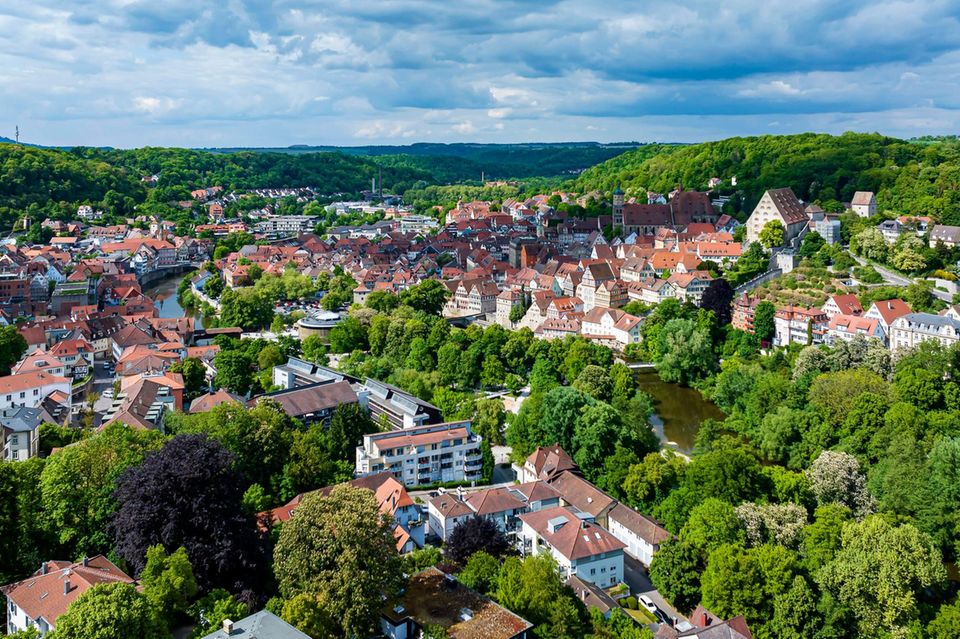Tourism: Tourism slump instead of overtourism: Why Berlin is losing visitors

While Europe's major cities complain about mass tourism, Berlin is struggling with a decline in visitors. Hotels remain empty, and cultural offerings are being cut. Why Berlin is scaring away travelers and what could be done to combat it.
What Paris , Madrid, and Rome complain about, Berlin would love to have: tourists. Unlike other European capitals, Berlin has still not recovered from the slump caused by the coronavirus crisis. While demonstrations against mass tourism are taking place elsewhere, Berlin would like to attract more visitors. A problem with overtourism? "You really can't say no," says Christian Tänzler, spokesperson for the tourism company VisitBerlin.
The capital welcomed around 5.9 million visitors in the first half of the year. This is 1.8 percent fewer than the previous year, according to the State Statistical Office. The number of overnight stays even fell by 2.9 percent to 13.9 million. Hotel occupancy is at 52.8 percent – meaning almost every second bed remained empty. By comparison, this figure was 65 percent in Madrid, and as high as 79 percent in Paris. In 2019 – the year before the outbreak of the coronavirus pandemic – the German capital attracted almost 14 million tourists, accounting for 34 million overnight stays. While Paris, Rome, and Madrid have recovered more quickly, Berlin is still lagging behind.

"The economic situation in Germany is not so good," says VisitBerlin spokesperson Tänzler, citing one reason for this. "And that is, of course, somewhat reflected in travel behavior." Annual vacations are the focus, with savings being made on second and third trips. A major reason for the weak development is therefore the reluctance of domestic vacationers, who make up more than 60 percent of visitors. Years of high inflation are having an impact here. "German tourists are very price-sensitive," says Tänzler. Europe's largest economy has recently shrunk for two years in a row – the only major industrialized nation (G7) to do so. The Spanish economy, where tourism accounts for around 16 percent of gross domestic product, performed much better, partly due to the influx of visitors.
“Our heavy industry is tourism”This is bad for Berlin's economy. The industry is a job engine: In total, tourism-related sectors – from hotels and bars to cultural institutions – employ around 225,000 people. This corresponds to 10.3 percent of all employed people, according to a study published by the Berlin DIW Econ Institute in May. With 3.2 percent of direct gross value added, the tourism sector surpasses the financial services sector (3.16 percent) and is only slightly behind the construction industry (4.8 percent). "Our 'heavy industry' is tourism," says Berlin's Governing Mayor Kai Wegner.
When asked about the reasons for the slump in visitor numbers, hoteliers and restaurateurs repeatedly cite BER Airport . It counted 12.1 million passengers in the first half of the year. For the whole of 2024, the number was 25.5 million, still significantly less than the 35.7 million handled in 2019 at the two former airports, Tegel and Schönefeld.
“Something’s wrong”Government-imposed charges such as air traffic tax, aviation security, and air traffic control fees are too high, complains Ralph Beisel, CEO of the German Airport Association (ADV). "These charges are among the highest in the EU and have tripled in some cases in recent years – a clear competitive disadvantage compared to neighboring European locations."

Low-cost airlines like EasyJet and Ryanair have therefore withdrawn planes from BER. "The airport has a capacity for 50 million passengers – they handled just 25 million last year," complained Ryanair CEO Eddie Wilson in "Focus." Dublin Airport – located in Ireland, one of the smallest countries in the European Union – handled 35 million passengers this year alone. "Something's not right."
Jan Philipp Bubinger of the "Ständige Vertretung" restaurant in the government district, which is also popular with tourists, agrees. "International tourists are definitely missing," he says. "Of course, this is also due to the high ticket prices." For many, they are unaffordable.
austerity policyOther experts, however, cite another reason for the absence of many visitors: the Senate's austerity policy, which hit the cultural sector hard and made negative headlines – including internationally – for weeks at the end of 2024. The cultural budget for the current year was cut by around 130 million euros.
The opera and concert halls, orchestras and choirs, as well as the State Ballet, warned against the austerity measures in a joint petition. "More than half of Berlin 's visitors demonstrably come to the city because of the attractive art and cultural offerings," it states. Cuts in cultural activities would severely curtail these offerings and thus lead to massive revenue losses for the entire city.
The opposition sees it similarly. "The Senate has created the impression that Berlin is skimping on its culture," says Julian Schwarze, a Green Party member of the House of Representatives and spokesperson for urban development, tourism, and club culture. Yet culture is the number one reason for many tourists to visit Berlin. If the impression now arises that culture is being lost, "then I'll save myself the trip to Berlin."
rtr/ms
capital.de




